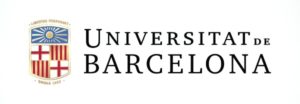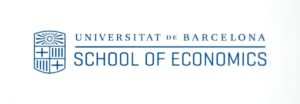We offer PhD Scholarships for 1 year (with possible extension for 2 more years), starting in September 2020. We are looking for students who have graduated in (or after) 2018 and who aim at enrolling on the PhD program in Economics (University of Barcelona). The candidates must have a Master in Economics completed by summer 2020 and be accepted to the PhD program in Economics, University of Barcelona (http://www.ub.edu/school-economics/phd-in-economics/). The successful candidates will develop their research investigating the interaction between intergenerational transfers, altruism and public policy under the supervision of Ció Patxot. More specifically, in the first year they will carry out research assistantship in the project described below. They might also have some teaching duties in micro and macroeconomic at undergraduate level within the Department of Economics of the Faculty of Economics and Business (UB). The yearly gross amount of the stipend is €16.400 (salary comes with full Social Security benefits). The scholarships also cover PhD tuition fees and travel grants for conferences. Only complete applications will be considered.
Candidates must:
1.Submit a statement of purpose and a CV to aalsinak@ub.edu indicating in the title of the message ‘PhD Scholarships’.
2.Applicants who have fully or partially completed the studies outside of the Spanish university system must submit their equivalency declarations (equivalence of grades) issued by the Ministry of Education and Vocational Training. For more details on the process to ask the equivalence have a look at the following link: https://www.ub.edu/school-economics/wp-content/uploads/2020/06/Instructions-grade-conversion2020.pdf. Deadline for applications: July 22nd, 2020 at 23:59.
CESTProject description Welfare State policies are under serious sustainability risks all over Europe, mainly due to ageing societies and globalization pressures. Current policies are falling behind those challenges. This project extends the dynamic microsimulation model DyPes to adapt it to the needs of potential clients of the public and private sector. The DyPes model is developed using the dynamic microsimulation Modgen programming language and is based on a very broad sample of real working lives (the Continuous Sample of Working Lives, MCVL, of the Spanish Social Security). ModGen is an Open Source microsimlation language developed by Statistics Canada. The concern for the future sustainability of the pension system, motivated by the aging of the population, has led to an increase in interest in techniques and models that make it possible to accurately project public spending on pensions. The projections of pensions expenditure, health and education of the Ageing Working Group (European Commission) estimate the sustainabilityof the pension system and, recently, they also incorporate measures of pensions adequacy. These measures require simulation instruments not currently available in Spain and many other countries. The WELTRANSIM project (http://www.weltransim.eu/), currently underway, combines microsimulation models of similar technology opens the doors to integrate the DyPes microsilmulation model into broader microsimlation models of the welfare state as a whole. WELTRANSIM models the different existing welfare states, based on their basic characteristics, according to the Esping Andersen typologies. Nevertheless, the main goal of this project is investigating the impact of the welfare state along the life cycle, looking at inter and intragenerational income redistribution. To that end, it incorporates National Transfer Accounts estimates (https://www.ntaccounts.org/web/nta/show/).

